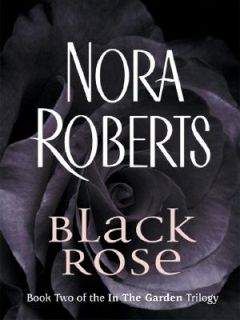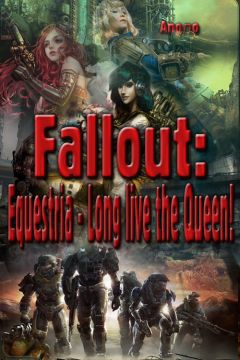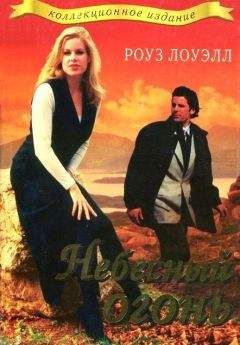Black Rose - NRoberts - G2 Black Rose
На электронном книжном портале my-library.info можно читать бесплатно книги онлайн без регистрации, в том числе Black Rose - NRoberts - G2 Black Rose. Жанр: Прочее издательство неизвестно, год 2004. В онлайн доступе вы получите полную версию книги с кратким содержанием для ознакомления, сможете читать аннотацию к книге (предисловие), увидеть рецензии тех, кто произведение уже прочитал и их экспертное мнение о прочитанном.
Кроме того, в библиотеке онлайн my-library.info вы найдете много новинок, которые заслуживают вашего внимания.

Black Rose - NRoberts - G2 Black Rose краткое содержание
NRoberts - G2 Black Rose читать онлайн бесплатно
He stopped, lifting the bill a bit to get a better look at her. She was wearing a short red denim jacket over jeans, and one of the In the Garden caps Stella had ordered for employees.
“Jesus, Hayley, get inside. This rain’s going to cut loose big-time any minute.”
“Was that Dr. Carnegie?”
“Yeah. He was looking for the boss.”
“You took him to the propagation house?” Her voice pitched up over the increasing drum of rain. “Are you just stupid?”
“What? He’s looking for Mom, she’s in the propagation house. I just left her there five minutes ago.”
“So you just take him there, say go right in?” She made wild gestures with both hands. “Without letting herknow ?”
“Know what?”
“That he’s here, for God’s sake. And now he’s going in, and she’s all dirty and sweaty, with no makeup on and in her grubbiest clothes. You couldn’t stall him for five damn minutes to give her some warning?”
“About what? She looks like she always does. What’s the damn difference?”
“If you don’t know, you are stupid. And it’s too late now. One of these days, Harper Ashby, you’re going to have use of the single brain men pass around among them.”
“What the hell,” he grumbled after she’d given him a punch on the arm and dashed inside again.
MITCH DUCKED INTOthe propagation house out of the rain. If he’d thought the houseplant section seemed exotic, it was nothing compared to this. The place seemed alive with plants in various stages of growth. The humid warmth was almost tropical, and with the rain pattering it seemed he’d walked into some sort of fantasy cave.
The air was pungent with green and brown—plants and soil. Music twined along with the scents. Not classical, he noted. Not quite New Age. Something oddly and appealingly between.
He saw tables and tools, buckets and bags. Shallow black containers holding delicate growing things.
And he saw Roz at the far end, on the side. Her back was to him as she worked.
She had a gorgeous neck. It was an odd thought, and, he admitted, probably a foolish one. But again, facts were facts. She wore her hair short and straight and to his mind, the style showed off that long, lovely neck perfectly.
Then again, all of her was rather long and lovely. Arms, legs, torso. At the moment that intriguing body was camouflaged in baggy pants and a shapeless sweatshirt she’d pushed up at the sleeves. But he remembered, very well, that willowy figure.
Just as he remembered, even before she heard his approach and turned, that her eyes were long as well. Long lidded and in a fascinating shade of deep, deep amber.
“I’m sorry. I’m interrupting.”
“That’s all right. I didn’t expect to see you here.”
“I got the paperwork, and thought I’d ride out and let you know it’s signed, sealed, and on its way back to your lawyer. Plus, it gave me a chance to see your place. I’m impressed. Even though I don’t know squat about gardening, I’m majorly impressed.”
“Thank you.”
He glanced down at her worktable. There were pots, some empty yet, some filled with soil and small green leaves. “What’s going on here?”
“I’m potting up some seedlings. Celosia—cockscomb.”
“I have no idea what that is.”
“I’m sure you’ve seen them.” She brushed a hand absently over her cheek, transferring a smudge of soil. “In bloom they’re like small feather dusters in bold colors. Red’s very popular.”
“Okay. And you put them in these little pots because?”
“Because they don’t like their roots disturbed after they’re established. I pot them young, then they’ll be blooming for our spring customers, and only have to tolerate that last transplanting. And I don’t imagine you’re all that interested.”
“Didn’t think I would be. But this is like a whole new world. What’s this here?”
She raised her eyebrows. “All right, then. That’s matthiola, also called gillyflower or stock. It’s very fragrant. Those there with the yellowish green leaves? They’ll be double-flowered cultivars. These will flower for spring. Customers prefer to buy in bloom, so I plan my propagation to give them plenty of blooms to choose from. This section is for annuals. I do perennials back there.”
“Is it a gift, or years of study? How do you come to know what to do, how to recognize the . . . cockscomb from the gillyflower at this stage?”
“It’s both, and a love of it with considerable hands-on experience thrown in. I’ve been gardening since I was a child. I remember my grandmother—on the Harper side—putting her hands over mine to show me how to press the soil around a plant. What I remember best about her is in the gardens at Harper House.”
“Elizabeth McKinnon Harper, wife to Reginald Harper, Jr.”
“You have a good memory.”
“I’ve been skimming over some of the lists. What was she like?”
It made her feel soft, and a little sentimental, to be asked. “Kind, and patient, unless you riled her up. Then she was formidable. She went by Lizzie, or Lizzibeth. She always wore men’s pants, and an old blue shirt and an odd straw hat. Southern women of a certain age always wear odd straw hats to garden. It’s the code. She smelled of the eucalyptus and pennyroyal she’d make up into a bug repellant. I use her recipe for it still.”
She picked up another pot. “I still miss her, and she’s been gone nearly thirty years now. Fell asleep in her glider on a hot summer day in July. She’d been deadheading in the garden, and sat down to rest. She never woke up. I think that’s a very pleasant way to pass.”
“How old was she?”
“Well, she claimed to be seventy-six, but in fact, according to the records she was eighty-four. My daddy was a late baby for her, as I was for him. I broke that Harper family tradition by having my children young.”
“Did she ever talk to you about the Harper Bride?”
“She did.” As she spoke, Roz continued with her potting. “Of course, she was a McKinnon by birth and wasn’t raised in the house. But she claimed to have seen the Bride when she’d come to live here, when my great-grandfather passed. My grandfather Harper grew up at Harper House, of course, and if we were right in dating Amelia, would have been a baby around the time she died. But he passed when I was about eight, and I don’t recall him ever speaking of her.”
“How about your parents, or other relatives?”
“Are we on the clock here, Doctor?”
“Sorry.”
“No, I don’t mind.” She labeled the new potted plant, reached for another. “My daddy never said much, now that I think about it. Maybe it’s a thing with the Harper men, or men in general. My mother was a dramatic sort of female, one who enjoyed the illusion of turmoil in her life. She claimed to have seen the Bride often, and with great stress. But then, Mama was always stressed about something.”
“Did either she or your grandmother keep a journal, any sort of diary?”
“Yes, both of them. Another fine old tradition I haven’t followed. My grandmother moved into the guesthouse when my father married and brought his own bride home. After she died, he cleaned out her things. I recall asking him about her journals, but he said they were gone. I don’t know what became of them. As for my mother’s, I have hers. You’re welcome to them, but I doubt you’ll find anything pertinent.”
“Just the same. Aunts, uncles, cousins?”
“Oh, legions. My mother’s sister, who married some British lord or earl—third marriage—a few years ago. She lives in Sussex, and we don’t see each other often. She has children from her first two marriages, and they have children. My father was an only child. But his father had four sisters, older sisters—Reginald’s daughters.”
“Yeah, I’ve got their names on my list.”
“I don’t remember them at all. They each had children. Let’s see, that would be my cousins Frank and Esther—both gone years now—and their children, of course. Ah, Lucerne, Bobby, and Miranda. Bobby was killed in World War II. Lucerne and Miranda are both gone now, too. But they all had children, and some of them have children now. Then there’s Owen, Yancy, ah . . . Marylou. Marylou’s still living, down in Biloxi where she suffers from dementia and is tended by her children, best they can. Yancy, I couldn’t say. He ran off to join a carnival years back, and no one heard from him again. Owen’s a fire-and-brimstone minister, last I heard, in Macon, Georgia. He wouldn’t talk to you about ghosts, I can promise you.”
“You never know.”
She made a noncommittal sound as she worked. “And my cousin Clarise, who never married. She has managed to live to a ripe age. Too sour not to. She’s living in a retirement village, other side of the city. She doesn’t speak to me.”
“Because?”
“You do ask questions.”
“Part of the process.”
“I’m not sure I remember exactly why she stopped speaking to me. I recall she didn’t appreciate that my grandparents left everything to me and my daddy. But they weremy grandparents, after all. My father’s parents, while she was only a niece to them. She came to visit here when the boys were young. I believe that’s when she cut me off, or we cut each other off, which is more accurate. She didn’t care for my style of raising the boys, and I didn’t care for her criticism of them, or me.”
“Before the family rift, do you recall if she ever talked to you about the Bride?”
“I don’t, no. Cousin Rissy’s conversations mostly consisted of complaints or her own irritable observations. And I know damn well she pilfered things from the house. Little bits and pieces. I can’t say I’m sorry we’re not on speaking terms.”
“Will she talk to me?”
Thoughtfully, Roz turned to him, studied his face. “She might, especially if she thinks I’d prefer she didn’t. If you decide to go see the dried-up old bat, be sure you take her flowers, and chocolate. You spring for Godiva and she’ll be very impressed with you. Then you turn on the charm. Be sure to call her Miss Harper, until she says otherwise. She uses the family name, and is very formal about everything. She’ll ask about your people. If you happen to have any ancestors who fought in the War Between the States, be sure to mention it. Any Yankees in your tree, disavow them.”
He had to laugh. “I get the type. I have a great-aunt who’s on the same page.”
She reached under the worktable to a cooler, took out two bottles of chilled water. “You look hot. I’m so used to it, I don’t notice.”
“Working in all this humidity every day must be what gives your skin that English rose look.” Absently he reached out, flicked a finger over her cheek. When her brows shot up again, he eased back, just a step.
“Sorry. You had a little dirt . . .”
“Something else I’m used to.”
“So . . .” He reminded himself to keep his hands otherwise occupied. “I guess from what I saw the other day, you’re ready for Christmas.”
“Near enough. You?”
“Not even close, though I owe you big—once again—for the gift for my sister.”
“You went for the cashmere, then.”
“Something the salesgirl called a twinset, and she said no woman could have too many of them.”
“Absolutely true.”
“Okay. So, I’m going to put some effort into the rest of it over the next few days. Get the tree out, fight with the lights.”
“Get it out?” A look that might have been pity, might have been derision covered her face. “I assume that means you’ve got a fake tree.”
His hands slid into his pockets, his smile spread slowly. “It’s simplest. Apartment life.”
“And from the state of that dieffenbachia, probably for the best.”
“State of the what?”
“The plant you were slowly murdering. The one I took when I came to your place to meet you the first time.”
“Oh. Oh, right.” When she’d been wearing that lady suit, he thought, and those high heels that had made her legs look ten feet long. “How’s it doing?”
“It’s just fine now, and don’t think I’ll be giving it back.”
“Maybe I could just visit it sometime.”
“That could be arranged. We’re having a holiday party at the house, a week from Saturday. Nine o’clock. You’re welcome to come, if you like. And bring a guest, of course.”
“I’d like that. Would you mind if I went over to the house now, took a look at the library? Get a ground floor started?”
“No, that’ll be fine. I’ll just call David and let him know you’re coming.”
“Good. I’ll go on, then, and get out of your way. I appreciate the time.”
“I’ve plenty of it.”
He didn’t see how. “I’ll call you later, then. You have a strong place here, Rosalind.”
“Yes, I do.”
When he’d gone out, she set her tools aside to drink deeply from the water bottle. She wasn’t a silly young girl who was flustered and giddy at the touch of a man’s hand on her skin. But it had felt strange and oddly sweet, that careful brush of his fingers over her cheek, and that look in his eyes when he touched her.
English rose, she thought and let out a half laugh. Once, long ago, she might have appeared that fragile and dewy. She turned and studied one of her healthy stock plants. She was much more like that now, sturdy and strong.
And that, she thought as she got back to work, was just fine with her.
DESPITE THE STEADYrain, Mitch took a walk around the buildings, and gained even more respect for Roz and what she’d built. And built almost single-handedly, he thought. The Harper money may have given her a cushion, he decided, but it took more than funds to create all this.
It took guts and vision and hard work.
Had he actually made that lame, clichéd comment about her skin? English rose, he thought now and shook his head. Like she hadn’t heard that one before.
In any case, it wasn’t even particularly apt. She was no delicate English rose. More a black rose, he decided, long and slender and exotic. A little haughty, a lot sexy.
He’d learned a lot about her life, just from that conversation in her work space. A lot about her. She’d lost someone she’d loved very much—her grandmother—at a tender age. She hadn’t been very close with her parents. And had lost them as well. Her relatives were far-flung, and it didn’t appear she had close relations with any of them.
Other than her sons, she had no one.
And after her husband’s death, she’d had only herself to depend on, only herself to turn to while she raised three boys.
But he’d detected no sense of pity, certainly no weakness in her.
Independent, direct, strong. But there was humor there, and a good heart. Hadn’t she helped him out when he’d been floundering over a toy for a little girl? And hadn’t she been amused by his dilemma?
Now that he’d begun to get a good sense of her, he only wanted to know more.
Похожие книги на "NRoberts - G2 Black Rose", Black Rose
Black Rose читать все книги автора по порядку
Black Rose - все книги автора в одном месте читать по порядку полные версии на сайте онлайн библиотеки My-Library.Info.




